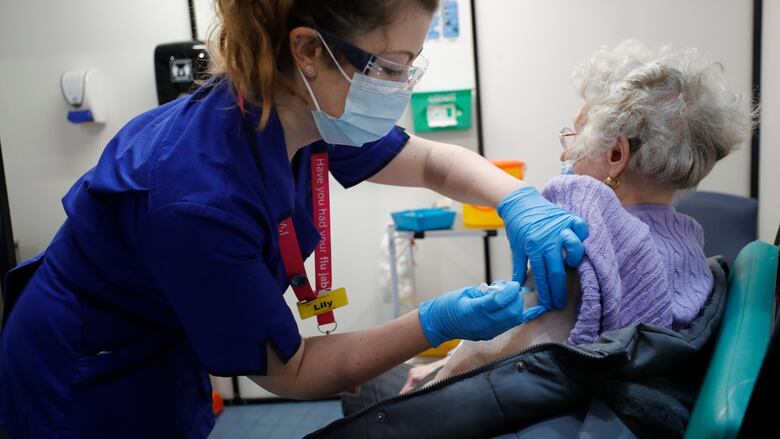Super freezers, security and who's first: task force for Waterloo region vaccine rollout
'We have been told to get ready,' region's CAO says of vaccine rollout

With news that a COVID-19 vaccine could start reaching Waterloo region by the end of this month, officials are now focusing on how exactly to handle the medicine.
The region announced on Friday a new task force will handle vaccine logistics. The group will be headed by Waterloo Regional Police Services deputy chief Shirley Hilton and will include various regional staff members from different departments, area hospitals, fire and police.
The task force held its first meeting on Friday.
Before that meeting, Hilton asked people in the region for patience as the group gets started.
"There is much to learn as the planning rolls out," she said. "We are committed to ensure the residents of Waterloo region remain informed with clear, consistent and relevant information."
Regional Chair Karen Redman said the task force will come up with an "efficient, equitable plan" for an immunization program in the community.
Dr. Hsiu-Li Wang, the region's medical officer of health, said the vaccine rollout won't be like the flu shot.
"This is going to be … likely the largest logistical undertaking in Canada, the province and here as well," she said.
'Get ready'
The province announce on Friday, phase one of the vaccine rollout will begin on Tuesday with a pilot project in Toronto and Ottawa which will include the vaccination of over 2,500 health-care workers.
Wang said she anticipates hearing more about when the region can expect the vaccine "very soon."
Bruce Lauckner, the region's CAO, said the region hasn't received defined timelines for when the vaccine will arrive locally.
"We have been told to get ready," he said, although added it's a fluid situation and things can change quickly.
"We will be operating in a matter of days and weeks — so very similar to the beginning of the pandemic when things happened very quickly. We're not talking months and years. We're talking days and weeks," he said, adding they're "preparing for distribution of a small amount potentially as early as the end of December."
There will be a phased rollout of the vaccine locally, Wang said, and members of the general public shouldn't expect to get access to the vaccine until about the third quarter of 2021.
The province announced Friday the second phase of the vaccinations will start when "an increased stockpile of vaccines becomes available."
During phase two, vaccinations will be administered to health care workers, residents in long-term care homes and retirement homes, home care patients with chronic conditions and to First Nation communities and urban Indigenous populations, including Métis and Inuit individuals – a demographic hit hard by the pandemic.
"Ontario will enter phase three when vaccines are available for every Ontarian who wishes to be immunized," a provincial release said.
Ultra-cold freezers expected in days
One item the region is expecting to arrive in the coming days is refrigeration units that can hold the Pfizer-BioNTech vaccine, because it needs to be kept in ultra-cold freezers.
One of the local hospitals will be the lead location, although regional officials weren't prepared to say which one on Friday as they were still awaiting confirmation.
Lauckner said within the next week, they expect to have "many more answers" to questions about vaccine rollout.
"We have existing infrastructure that is appropriate to receive the vaccine," he said. "We are focusing our efforts then on the distribution."
Keeping vaccine secure
Hilton also said security will also be a focus of the task force because the early doses of the vaccine will need to be kept safe.
She says the province will have a security plan, but depending on where the vaccine is kept locally, police will work with hospital security to ensure limited access to it.
"We are obviously monitoring as it relates to any potential threat," Hilton said.
"We have to consider cyber threats in addition to organized crime threats," she added. "It's a commodity ... and so that is something that we have to put considerable effort and strategy into what that security plan looks like."